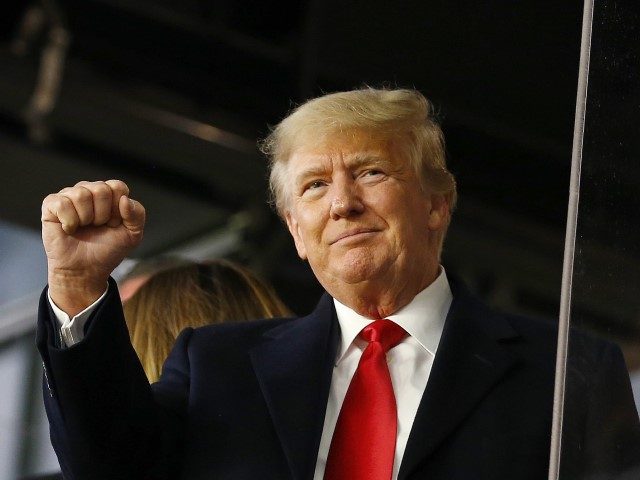The 2007 economic crash and President Donald Trump’s pro-American policies halved the migrant inflow from 2010 to 2020, according to Census Bureau data leaked to Axios.com.
The new data from the American Community Survey (ACS), said Axios, “revealed the smallest decade gain in the foreign-born population since the 1960s, at 3.6 million [from 2010 to 2020]. In comparison, the immigrant population grew by 8.8 million during the 2000s.”
The 60 percent reduction in the legal and illegal inflow of foreigners helps Americans win higher wages by forcing employers to compete for workers. The reduced inflow also pressured reluctant companies to buy modern labor-saving machines so that American employees can get more work done in less time.
The reduction has also encouraged legal immigrants to shift their political focus from divisive ethnic politics toward shared national concerns, such as wage growth and family budgets.
But business is disadvantaged by the reduced inflow of legal and illegal foreign workers, consumers, and renters into Americans’ society, Axios claimed:
A country with an aging population like that found in the United States needs strong levels of immigration to support economic growth. More immediately, immigrants could help fill the millions of job openings in the U.S.
Trump and his anti-coronavirus policies get some of the credit, according to Axios: The foreign-born population dropped from 13.7 percent in January 2017 to 13.2 percent in January 2020.
Still, the foreign-born share of the U.S. population rose by 0.3 points during the entire decade, from 12.9 percent in 2010 to 13.2 percent in 2020.
But the decade’s o.3 point rise was far less than the rapid 1.8 point rise from January 200o to January 2010, according to the Axios charts.
From the 1990s to at least 2008, the federal government’s extraction migration policies created a bubble of cheap legal and illegal immigrant labor. That flood of labor forced down wages raised housing costs, spiked the stock market, and moved trillions of dollars in wealth from ordinary Americans to coastal investors.
Numerous groups — including JP Morgan and Goldman Sachs — have credited Trump’s reduced labor supply for boosting Americans’ wages and forcing greater investment in labor-saving technology.
President Joe Biden and his deputies are trying to reinflate the cheap-labor bubble.
For example, they have allowed roughly 2 million migrants into the United States during 2021, including roughly 600,000 so-called “got-aways” who sneaked past Donald Trump’s incomplete border wall. Biden’s deputies are also pushing for passage of the “Build Back Better” bill that would allow millions of additional blue-collar and white-collar migrants into the United States during the next 10 years.
“Our economy stands to benefit tremendously from allowing more [foreign] folks to work legally, especially as we face a labor shortage that continues to contribute towards inflation,” said a December 5 statement from Sen. Tim Kaine (D-VA) to a pro-migration website, LatinoRebels.com. The LatinoRebels site is quietly funded by very establishment donors, including the Chan Zuckerberg Initiative, which uses Facebook profits to fund FWD.us and other pro-migration groups.
Each year, roughly 4 million Americans turn 18 and begin looking for work, spouses, and homes.
But since the mid-1990s, the federal government has skewed the economy in favor of U.S. business by extracting roughly 1 million people from foreign countries to work, consume, and use housing in the United States. The inflow is augmented by illegal migrants and by a resident population of at least one million foreign contract workers.
That huge inflow has mostly settled in the coastal states, raising coastal real estate values while draining people and diverting investment from the interior states.
The U.S. government’s post-1986 bipartisan economic policy of extraction migration is deeply unpopular among a broad swath of voters because it damages ordinary Americans’ career opportunities, cuts their wages, and raises their housing costs. The mass inflow also helps to transform the United State into a low-productivity, mass-consumption economy.
The invited migration shrinks Americans’ political clout, widens regional wealth gaps, radicalizes their democratic, compromise-promoting civic culture, and allows the elites to ignore despairing Americans at the bottom of society.


COMMENTS
Please let us know if you're having issues with commenting.